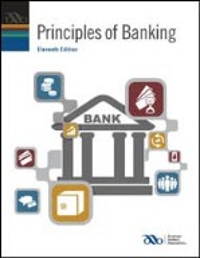Question
Yanama Ltd. is a mid-sized manufacturing company owned by a group of private investors. Until five years ago Yanama was a division of a public
Yanama Ltd. is a mid-sized manufacturing company owned by a group of private investors. Until five years ago Yanama was a division of a public company. Yanama was sold off as part of a restructuring is now operated as a private corporation. Yanama has continued to use IFRS although it is considering changing to ASPE. Yanama has borrowed significant amounts of money both to finance its acquisition and to upgrade operations. As a result, cash flow has been a concern and covenant violation has been an ongoing threat for several years. According to its various borrowing arrangements, Yanama has to maintain minimum current ratio of 1:1 and a maximum debt-to-equity ratio of 1.75 to 1 It is November 15, 2020. The companys year end is December 31. The auditors have recently finished their interim work on the audit. In preparation for the year-end the CFO has asked you, a CPA working in the finance and accounting department, to prepare a report on some unresolved accounting issues and concerns including an assessment of the impact on the financial statements and covenants. Information you have gathered on the issues is provided in Exhibit 1.
Exhibit 1 Information on Unresolved Accounting Issues: Provide recommendations for each accounting issue
1. In an effort to increase sales, Yanama relaxed its credit policies. Management thought that its policies had been too tight thereby making it difficult for customers to purchase the companys products. Each customers credit limit was increased by 25% to 50% and terms were relaxed so that credit was available to more customers. In addition, Yanama increased its flexibility on pricing, allowing salespeople to reduce the selling price at any time up to 30 days after payment was received from a customer on a purchase.
2. In September 2020 Yanama entered into an agreement with Maizal Inc., a new customer, to supply parts for Maizals production process. Maizal has been suffering from cash flow problems and doesnt want to have to pay for inventory until its needed. However, Maizals production tends to be uneven and it needs to have an adequate supply of parts readily available. It would normally takes up to nine days to reliably get goods from Yanama to Maizal from the time of order. To accommodate Maizals needs, Yanama agreed to maintain a minimum three-week supply of its parts in a small warehouse located near Maizals facility on land owned by Maizal. The warehouse is owned by Maizal. The credit terms require Maizal to pay for parts within 30 days of removal from the warehouse. Maizal is responsible for the security of the warehouse and is responsible for any theft or damage to the inventory. Under the terms of their agreement Yanama can sell any of the parts in the warehouse to other customers provided that Yamana can meet Maizals minimum requirements. The warehouse is managed by a Yanama employee.
3.The CFO is considering selling a portion of Yanamas receivables to improve cash flow. A lending institution has agreed to purchase up to 25% of the receivables. The lending institution would be able to choose the receivables it would purchase from a list provided by Yanama. The terms of the arrangement havent been finalized but negotiations are continuing. The CFO has never arranged a deal like this and would like your insights on anything she should be aware of about the deal that could affect the financial statements and suggests on how it might be structured.
4. Yanama has a borrowing arrangement with a credit institution that provided $1.5 million of financing. The arrangement can be called by the credit institution at any time with 35 days notice. Yanama has classified the borrowing arrangement as a current liability. Yanama has been talking to a bank about replacing the loan with the credit institution. The bank has presented two proposals. The first would be similar to the current arrangement with the credit institution, except that the interest would be lower by 0.25%. The second would be a three-year term loan at an interest rate thats 1% higher than the demand loan arrangement (the first proposal). Discussions with bank have moved slowly, mainly because the CFO is very busy. She said she would like to finalize the deal at the board of directors meeting in early January. She said theres no time at the December meeting to discuss so the issue would have to wait.
Step by Step Solution
There are 3 Steps involved in it
Step: 1

Get Instant Access to Expert-Tailored Solutions
See step-by-step solutions with expert insights and AI powered tools for academic success
Step: 2

Step: 3

Ace Your Homework with AI
Get the answers you need in no time with our AI-driven, step-by-step assistance
Get Started


